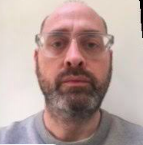After five months of a trial costing ‘tens of millions of pounds’, the collapse of the biggest ever miscarriage of justice trial, involving eight police officers and two witnesses over the wrongful conviction of three men for the 1988 murder of Lynette White in Cardiff has led to the same old question – rhetorical, it has to be said – about whether or not there’s one law for the police and one law for the rest of us?
No evidence
The accused officers walked free not because a jury acquitted them – the jury never got the chance to pass any verdict at all – but because the CPS and police investigators had destroyed copies of documents relating to a complaint and that destruction was not noted. Apparently this meant the officers and witnesses could not get a fair trial (irony is not dead).
Stephen Miller, Tony Paris and the late Yusuf Abdullahi, who became known as the ‘Cardiff Three’, were not so fortunate. They, along with cousins Ronnie and John Actie (both eventually acquitted but not before spending two years in prison awaiting trial), were all accused of the appalling murder despite there being a complete absence of any credible evidence against them.
The case became one of the most notorious in British legal history, the first miscarriage of justice to be resolved by the conviction of the real murderer. The three were released from life sentences in 1992 their convictions overturned after DNA evidence, available at the time of their trial, proved conclusively they were not responsible. Their innocence, already not in doubt, was confirmed when Jeffrey Gafoor (who has since confessed) was convicted on the same DNA evidence in 2003 (after an entirely separate police investigation).
Systematic bullying
The decision to halt the trial means the only people held accountable for a scandalous miscarriage of justice are three witnesses who resisted systematic bullying by officers for months before cracking under duress, and were then convicted for the lies they had been forced to tell. In 2008 Mark Grommek, Leanne Vilday and Angela Psaila – were given 18 months for perjury. Vilday and Psaila, were at the time prostitutes and acknowledged as being particularly vulnerable. Vilday was threatened with jail and losing custody of her young child, should she fail to give evidence against the ‘Cardiff Three’. Grommek pleaded not guilty on grounds of duress, though the peculiar vagaries of British justice meant this was not actually available as a defence to the charge, despite Lord Taylor, then chief justice, acknowledging that the police techniques used in respect of the witnesses were ‘almost passing belief’. ‘It is hard to conceive of a more hostile or intimidating approach by officers to a suspect,’ he said.
The failure of the trial means that in all likelihood there will never be an investigation into why and how the original trial was ever allowed to go ahead. A public inquiry has been called for but with no political impetus behind it there is little chance of it happening and certainly not with the same fanfare and resources currently being expended on ‘phone hacking’. It also means the only people who have been held to account are three witnesses who were effectively forced to lie – whilst the police who were the real reason behind the false evidence remain unpunished.
An appalling vista
The end of a trial that never was, occurred in the same week as news that Sgt Mark Andrews, a ‘thug in uniform’ according to one witness, is to be reinstated to his former position, despite seemingly damning video evidence of him allegedly mistreating a prisoner.
Sgt Andrews was dismissed by Wiltshire Police after being seen on CCTV in July 2008 dragging Pamela Somerville, 60, across the floor. Although found guilty of ABH and sentenced to 6 months in September 2010 he was freed six days later on bail pending an appeal which he later won in November 2010. Though conceding that Sgt Andrews ‘could have done things better’, Mr Justice Bean at Oxford Crown Court quashed the conviction saying he was satisfied that Andrews had not deliberately meant to harm Somerville (who is now partially blind in her left eye) and that her injuries ‘were probably caused by her falling to the floor after letting go of the door frame’. Andrews told the appeal that she was the most unpredictable prisoner he had ever come across, had been abusive and that ‘I don’t think I did anything wrong’. People can watch the video footage of Sgt Andrews online and judge for themselves and see stills here.
Some 31 years ago Lord Denning, dismissed the first appeal of the Birmingham Six saying: ‘If they won, it would mean that the police were guilty of perjury; that they were guilty of violence and threats; that the confessions were involuntary and improperly admitted in evidence; and that the convictions were erroneous… . That was such an appalling vista that every sensible person would say: ‘It cannot be right that these actions should go any further’.’
Lord Denning, less a voice of judicial good than his supporters claim, was of course proved entirely wrong when after a further 11 years in jail the ‘Birmingham Six’ convictions were quashed in 1991 in a blizzard of appalling evidence of police collusion, threats and violence toward the suspects. He was also wrong as regards what a ‘sensible person’ would believe about the police. Even in 1980 the idea of police officers as a cross between Dixon of Dock Green and Mr Plod from Noddy was patently ridiculous. There is a growing acceptance that many in the police view themselves as above the law, untouchable – something the contrasting fortunes and misfortunes of the main players in these sorry sagas confirms.






